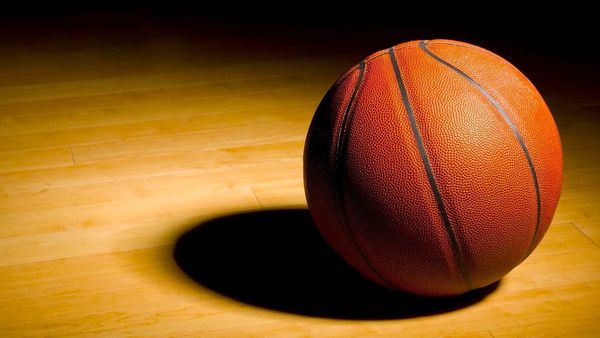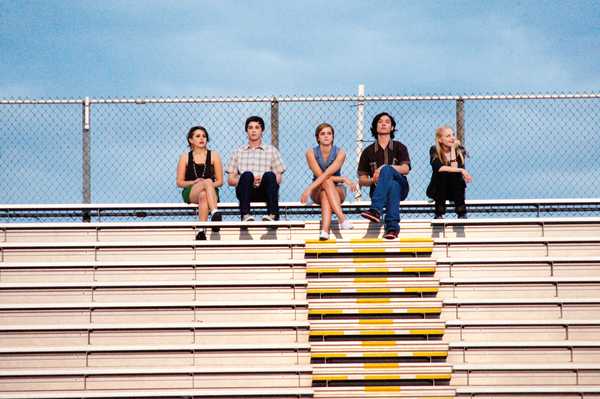Due to external circumstances, I was unable to make it out to the theaters to see "Concussion" once it premiered this past Christmas day. Being a big fan of Will Smith's, and taking a very large interest in the film's subject matter, I was elated to have been gifted the film on DVD a few weeks ago just after it hit stores.
For those unfamiliar, the film, based on actual events, follows the biographical footsteps of Dr. Bennet Omalu, the doctor who first discovered the disease known as Chronic Traumatic Encephalopathy (CTE), a degenerative brain disease caused by suffering repeated or severe blows to the head, in deceased former professional football players. Though Omalu's discovery and subsequent research is undeniable, the National Football League quells any notions in his work and subjects him to extreme pressures in an attempt to force him to back off of his efforts. In the end, however, something happens that forces the league to exonerate Omalu and work toward combating the issues he uncovered through all of his research. I won't play spoiler here, but this is the film's basic plot line.
Unsurprisingly, I was not at all disappointed. Admittedly, it would take a lot for me to not enjoy a movie about football, but this movie was unique in that it portrays the National Football League as the antagonist. In comparison to other football movies I've seen (the list is decent in number), this was the only one that didn't paint the game in a positive light. Rather, "Concussion" drags the game of football through the mud, in particular the National Football League as it tries to keep quiet the doctor that discovered the brutal truth about the links between playing football and brain damage. Having watched the movie from start to finish three separate times now, there is an overarching question in my head, one about which I believe the sports world has already begun conversing, but cannot come up with a clear-cut answer quite yet.
While portrayals about the harsh realities of playing football (much like the ones seen in "Concussion") are undoubtedly eye-opening and attention-grabbing, are they, at the end of the day, enough of a deterrent that we will one day see a noticeable decline in the nationwide proportion of young men playing football?
To be clear, my question doesn't have anything to do with the authenticity of CTE in professional football players or the NFL's mishandling of Dr. Omalu's research. Rather, it is an extension of the knowledge I gained while watching the film, coupled with a curiosity about the real-world ramifications of such knowledge. Are parents now going to dissuade their children from playing football? Are young men really going to think about CTE and health risks when they decide they want to play high school football and are intent on earning a scholarship to play at the college level?
As a Steelers fan, I'll admit that I found this film a bit difficult to watch at times (Dr. Omalu's discovery happened while he was employed as a forensic pathologist at the Allegheny County coroner's office, so his research came at the expense of a handful of former Steelers dying from the disease). It was pretty disturbing watching Mike Webster, arguably the greatest Center to ever play the game, go from giving his Hall of Fame induction speech in one scene and seeing him begin to lose his mind in the next as he inhales chemicals from a rag while living out of the back of his pickup truck. What really hit me the hardest was the short clip shown of Webster blocking a defender right after Omalu made the initial discovery on his brain. The camera zooms into Webster's head on impact and shows his brain jolting back and forth while the neurons in his brain sustain visible damage. But while images such as these are indeed shocking in the moment, I have serious doubts about their longevity as it relates to assessing the decision on whether to play football or not.
The NFL has acknowledged that there indeed exists a link between concussions and CTE, that much cannot be debated. But what hasn't been acknowledged -- at least not publicly -- is that it is the very nature of the game of football that makes hard, violent hits desirable. Fans love to see them, players love to dish them out, and many coaches even award their players for doing so. It is the gladiator-like mentality of its players that self-perpetuates ideals of acceptable violence and masculinity in football. In football, you have to be the physically and mentally toughest version of yourself that you can possibly be. No matter how badly you hurt or how tired you are, you have to be out there for your team and you cannot let your teammates down. When you've played football long enough, these unwritten rules become so deeply embedded into you that you don't even think twice about it.
Omalu's partner, Dr. Bailes, said it best in the film: "You have to be part of all that. Down there on the sidelines with them. Whatever it takes to keep them in the game. To keep it all going. Tape, needles, Vicodin, Torodol, Lidocaine, Percocet. Lexapro. Zoloft. Tires. Oil. You’re a mechanic keeping the race cars on the track." It is this unconditional positive regard for the game that I believe would maintain its participation in spite of all the information we know about CTE. As I like to phrase it, if you love football, then you love football. If I went and asked any of my former high school teammates if they would like to go back and all play together again, I am willing to bet that none of them would decline due to concerns about CTE. I know I darn well I wouldn't. My years of football hardwired an unbounded love for the game within me, and I only ended up playing through the end of high school. Can you imagine what effect this phenomena would have on a player who has reached the college or professional level?
Now, I'm not trying to compare a high school football career to Mike Webster's 17-year NFL Career. In the film, Dr. Omalu estimates that Webster, throughout the duration of his career -- every snap of every practice and game -- sustained over 70,000 blows to his head, which is truly remarkable. However, there is no shortage of hard hits in high school and college ball as well. Of course, because of Dr. Omalu's achievements, head injuries are now under a microscope at all levels of football. Whereas concussions used to go largely untreated and rarely even diagnosed, players who feel even a little bit woozy now typically are removed from the game and have their helmet taken away until they can clear the established concussion protocol. I'm all for the safety and security of players worldwide, so I'm completely in favor of the concussion awareness movement. But if I'm being truthful, it's not going to stop anybody from playing football if they really love the game.
The work done on CTE has focused largely on former professional football players. To my knowledge, the jury is still out on whether CTE can affect high school or college players, though there are studies and examples that suggest there could indeed be a link. And naturally, there are also medical experts out there who discredit the links between the two altogether. There's still a bit of uncertainty revolving around football and its brain-related health risks, but it appears that we can say with a decent amount of confidence that by playing football, one increases their risk of suffering brain damage.
The first time I watched "Concussion," I couldn't help but to reminisce about my own playing days a bit. Having played a position not too dissimilar from Mike Webster's, I couldn't help but to have lingering thoughts in the back of my mind about some of the hits I took. I had always been the type of player that handled my business with proper technique over unbounded, brute strength violence in my collisions, one of the many products of good coaching. So luckily, I never sustained a concussion playing football, but certainly there were instances where a mild headache feeling wasn't out of the ordinary at all, and many of my former teammates would concur. I love the game though, and nothing will ever change that. There are so many benefits in playing the game of football that I feel right now, despite all that we know, they still handily outweigh the costs. Can you ever envision a scenario where the NFL season is in jeopardy because there aren't enough players that want to play due to concerns over CTE?
"Concussion" was a great film, and Bennet Omalu was a great doctor that made a groundbreaking discovery. But right now, we're simply not at the point where the current batch of information is going to make a noticeable difference. Football is ultra-popular in America, and when kids decide they want to play football or have a dream of making it to the NFL, they simply aren't thinking about CTE. Likewise, when fans pack stadiums, head out to local taverns, or sit down on their couch to watch games on Sunday and Saturday afternoons, they're not watching a brain damaging contest. They're watching football.






















